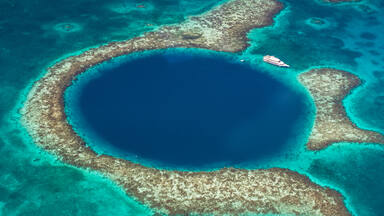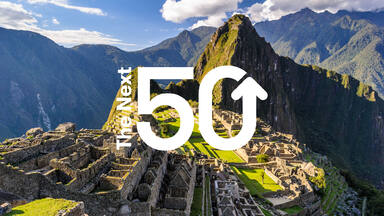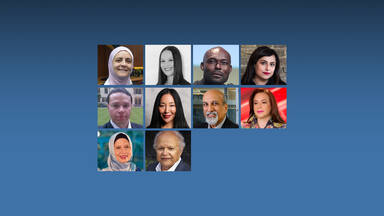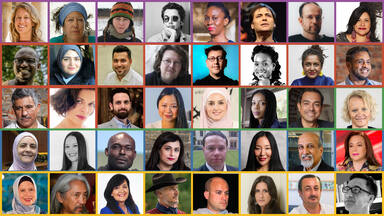Krista Kim
Digital artist and creator of the Mars House, the first ‘metaverse home’ for sale
Ahmed Salman
Senior immunologist, vaccinologist and researcher at the Jenner Institute at the University of Oxford
Vision for the Next 50
In the Next 50… The metaverse is used as a powerful tool for cultural preservation and education. This intersection between science, engineering and culture benefits humanity and heritage.
In the Next 50… Based on the experience of COVID-19, the inequalities gap between countries are narrowed. Science and culture collaborate to effectively spread knowledge and values.
Summary
Krista Kim and Ahmed Salman mainly discussed the intersectionality between art and science. COVID-19 highlighted the importance of bridging the gap between science and culture in order to reduce scepticism and foster a healthy mental state and well-being of people. Kim explores the opportunity of the metaverse to consolidate this intersection and preserve and transmit endangered stories, languages and heritage to future generations. Ahmed believes that COVID-19 encouraged scientists to communicate and cooperate with artists and professionals in the culture sector. Speaking of widening inequalities during the pandemic, he also emphasized the importance of fairness across the world when imagining the future of humanity and heritage.
Dialogue
Watch the dialogue
Explore other sessions
Five dialogue sessions covering five themes take place in 2022, each joined by thinkers in paired dialogue from diverse regions. The interdisciplinary dialogues inspire new visions for the next 50 years of World Heritage.



